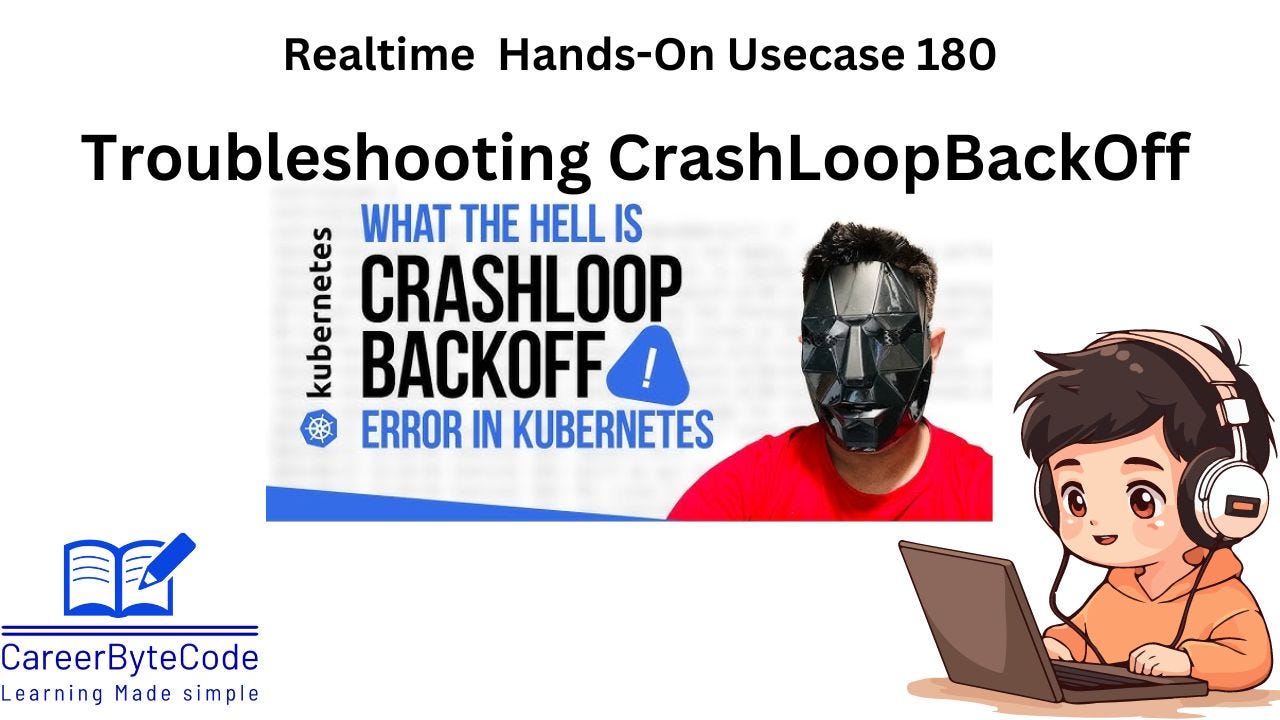Pod Crisis Management: Fixing CrashLoopBackOff in Google Kubernetes Engine
Pods in Kubernetes may enter a CrashLoopBackOff state when they repeatedly fail to start or crash shortly after starting.
1. Why We Need This Use Case
Pods in Kubernetes may enter a CrashLoopBackOff state when they repeatedly fail to start or crash shortly after starting. This indicates a recurring issue, such as misconfigurations, missing dependencies, insufficient resources, or bad code logic, which prevents the pod from running successfully. Recovering from CrashLoopBackOff is critical for maintaining application availability and stability. Diagnosing and resolving these issues ensures that the cluster operates smoothly and reduces downtime for critical services.
2. When We Need This Use Case
When a pod is stuck in the CrashLoopBackOff state and is unable to start or keep running due to repeated failures.
To troubleshoot applications with misconfigured environment variables, missing files, or dependencies that lead to pod crashes.
When investigating resource allocation problems, such as insufficient CPU or memory, which cause pods to crash repeatedly.
For handling errors in the application code that are causing the container to fail upon startup or during runtime.
When improving resilience and stability in production workloads by diagnosing frequent pod failures.
3. Challenge Questions
Keep reading with a 7-day free trial
Subscribe to CareerByteCode’s Substack to keep reading this post and get 7 days of free access to the full post archives.



